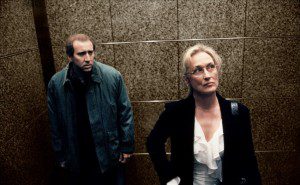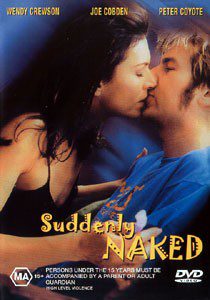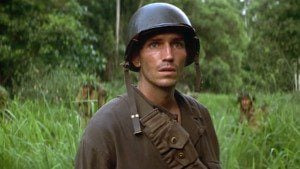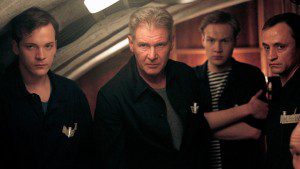 Adaptation is about a screenwriter named Charlie Kaufman who is struggling to adapt a book on orchids by a writer for the New Yorker named Susan Orlean. As it happens, the film itself is written by a screenwriter named Charlie Kaufman — whose previous forays into the bizarre and self-referential include the little-seen Human Nature and the inspired, if over-rated, Being John Malkovich — and parts of this new film are based on a book on orchids by a real-life writer for the New Yorker named Susan Orlean. As the character Kaufman himself admits, after he has written himself into the screenplay, his script is self-indulgent, narcissistic, and solipsistic. It’s also a heck of a lot of fun.
Adaptation is about a screenwriter named Charlie Kaufman who is struggling to adapt a book on orchids by a writer for the New Yorker named Susan Orlean. As it happens, the film itself is written by a screenwriter named Charlie Kaufman — whose previous forays into the bizarre and self-referential include the little-seen Human Nature and the inspired, if over-rated, Being John Malkovich — and parts of this new film are based on a book on orchids by a real-life writer for the New Yorker named Susan Orlean. As the character Kaufman himself admits, after he has written himself into the screenplay, his script is self-indulgent, narcissistic, and solipsistic. It’s also a heck of a lot of fun.
Kaufman is played by Nicolas Cage, and it is good to see him finally tackle a role worthy of his talents after squandering them for so many years on overblown action epics. (Trivia note: John Malkovich and John Cusack both have cameos as themselves on the Being John Malkovich set, and the last time Cage shared the screen with them was in the Jerry Bruckheimer convicts-hijack-a-prisoner-transport-plane flick Con Air.) Cage plays two roles, actually; for this film, the real-life Kaufman has given himself a fictitious twin brother, and although they look virtually identical, Cage gives each of them subtle mannerisms that make them strikingly distinct from one another.
Charlie is anxious about everything, he hates Hollywood clichés, he can’t even work up the courage to kiss a woman who obviously likes him, and he stresses over the task of adapting Orlean’s book. Meanwhile, his carefree brother Donald blithely decides to become a screenwriter too, and he effortlessly fills his script with every cliché in the book; he also has no trouble at all impressing agents or hooking up with one of the make-up girls (Maggie Gyllenhaal) on the Malkovich movie. Charlie gets even more depressed when Donald starts reading book and attending seminars by screenwriting guru Robert McKee (a hilariously domineering Brian Cox) and passes on what he thinks are helpful tips.
As Charlie toils away on his screenplay, the film cuts back every now and then to Susan Orlean (Meryl Streep) and the work she did in Florida a few years earlier while researching her book. Entitled The Orchid Thief, it’s about an eccentric poacher of rare flowers named John Laroche (Chris Cooper), whose unusual interests — and his apparent ability to give up his obsessions on the slightest whim — come to represent, for Charlie, the wisdom of following one’s passion, however irrational and even inconsistent it might be. For her part, Orlean herself comes to represent, for Charlie, someone who does not yet know what her passion is. And as Charlie sees more and more of himself in these characters, he decides to go ahead and project himself into their story.
All of this action is set against a backdrop that goes back to the very beginning of time: primeval volcanoes, ice ages, rotting animal corpses, and finally the accident of one person’s birth — these things and others are all portrayed in a flash-forward montage in the film’s first few minutes. The film’s title refers not just to the script that Kaufman adapts from Orlean’s book, but to the evolutionary processes by which species thrive and survive, and Kaufman hints that this process is ignorant and absurd, and that our own chance to find happiness may lie in blindly following our hearts and not thinking so much.
The question running throughout this film is how we should balance knowledge and innocence, and whether it is possible to find meaning, or at least escape, through willful ignorance. What you make of the film’s final half-hour, when Charlie takes Donald’s advice and overtly flirts with all the clichés he eschewed until then, will turn on whether you think Donald is a sort of holy fool, whose surface banality masks a deeper wisdom, or just a plain fool, whose instincts Charlie indulges because he doesn’t know what else to do. It’s not easy to tell whether Kaufman is pandering to his audience in the end, or whether he truly feels his characters have learned something. But as they say, once you can fake sincerity, you’ve got it made.
4 stars (out of 5)
— A version of this review was first published in the Vancouver Courier.












